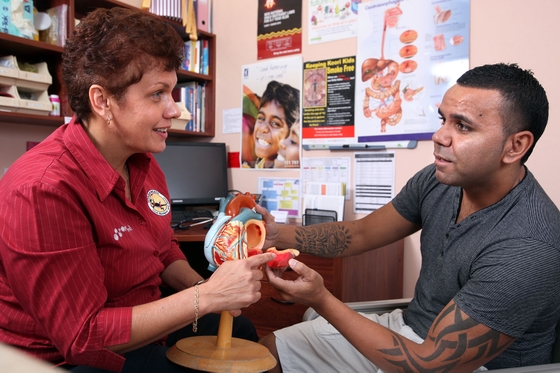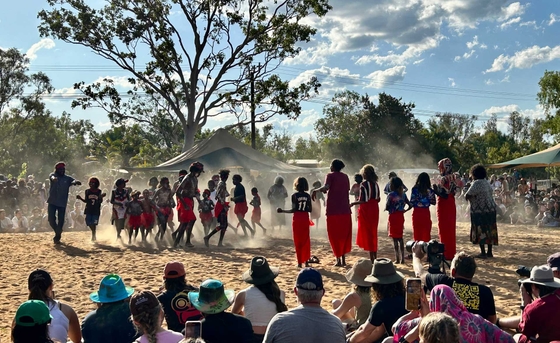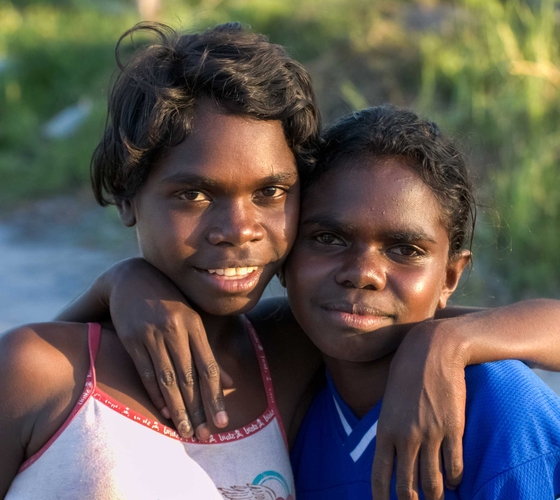
Remote Laundries project
The Heart Foundation and Aboriginal Investment Group (AIG) are joining forces to support the rollout of the Remote Laundries project.
Since its inception (in Barunga), the Remote Laundries project has had a phenomenal impact. By enabling people to have access to washing facilities, this has helped reduce the spread of scabies infections by up to 60%.
What is scabies?
Scabies is an itchy skin condition caused by a tiny bug called a mite. The mite burrows under the skin and lays its eggs. After hatching, the new mites are spread when the skin is scratched.
Scabies infection causes red lumps on the skin, and can also sometimes cause a rash due to an allergic reaction to the mites.
Scabies is commonly found on the wrist, between the fingers, the folds of the elbow, and other places on the body where the skin is soft and protected.
How is scabies spread?
Scabies is very easily spread from person to person by skin contact. Anyone can get scabies.
Scabies mites can live outside the body for a day or two, so they can also be spread on bed sheets, towels, clothes, or other items that come into contact with the skin, used by someone with the infection.
Skin infected with scabies can easily be treated with a cream or lotion containing permethrin. If one member of a family has scabies, it is important that all family members are treated too.
How is scabies linked to ARF and RHD?
People with scabies can develop skin infections, due to scratching their itchy skin, which can lead to sores. These skin sores can sometimes become infected with the bacteria (Strep A) that causes acute rheumatic fever (ARF). If the Strep A infection is not treated, this can lead to ARF and to rheumatic heart disease RHD.
How do the laundries help?
The laundries enable people to wash their clothes, towels, and sheets etc, which helps get rid of the scabies mites.
Washing infected clothes etc in hot water (more than 50oC for more than 10 minutes) or drying the clothes in a hot tumble dryer for 20 minutes or more, can kill the scabies mites. This helps stop the spread of the mites and reduces scabies infections.
Fewer scabies skin infections helps reduce the chance of developing skin sores, and the sores becoming infected with Strep A, which in turn reduces the chance of developing ARF and RHD.
You can find further information at: Remote Laundries project

You might also be interested in...

First Nations heart health
More First Nations people are impacted by cardiovascular (CVD) than other Australians.

Events
Travelling to communities, listening and learning, working alongside local clinics...

Acute rheumatic fever (ARF) and rheumatic heart disease (RHD)
Rheumatic heart disease is a serious disease that causes damage to your heart valves.
Last updated23 February 2024